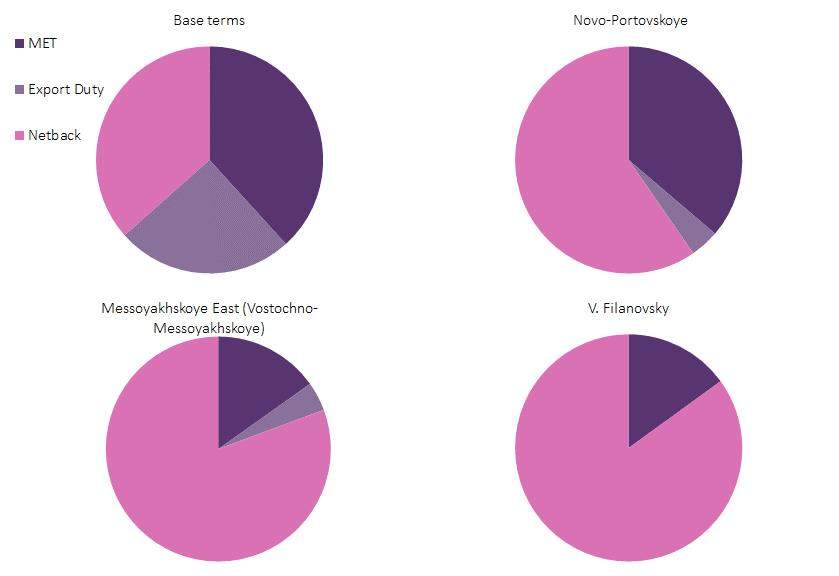Russia’s decision on June 6 to complete the “tax manoeuvre” and phase out oil export duty will have wide-ranging policy implications. The tax manoeuvre commenced in 2015 with the marginal export duty rate reduced from 59% to 30% over three years. The rate remains at 30% for 2018 but policymakers have now reportedly agreed to reduce the rate by 5% per year until it reaches zero in 2024.
Duty on oil product exports will also phase out as these rates are linked to the crude oil duty. The policy has been pushed with the aim of simplifying the tax structure and improving the competitiveness of the domestic refining sector by reducing the level of insulation from global markets.
The revenue loss from the removal of oil export duties is to be offset by an increase in Mineral Extraction Tax (MET). The phase-out of export duty will require an increase of around 50% in the base MET rate to maintain the overall tax burden under base terms.
However, changes to MET rates may need to be more nuanced, as the distribution of the tax burden between MET and export duty across different fields varies significantly due to the complex array of incentives available. The government is separately piloting a new profit-based tax regime avoiding the need for targeted incentives, but the prospects for a full roll-out remain uncertain.
Distribution of tax burden on oil production under base regime and for selected fields (at current prices)

| Source: Upstream Economics © GlobalData |
The more challenging task for the government as export duty is phased out may be limiting domestic fuel price inflation. At the end of May the government agreed to reduce excise taxes in return for a freeze on fuel prices, but increased duty on exports of light oil products has also been threatened if price rises continue.
How well do you really know your competitors?
Access the most comprehensive Company Profiles on the market, powered by GlobalData. Save hours of research. Gain competitive edge.

Thank you!
Your download email will arrive shortly
Not ready to buy yet? Download a free sample
We are confident about the unique quality of our Company Profiles. However, we want you to make the most beneficial decision for your business, so we offer a free sample that you can download by submitting the below form
By GlobalDataThe planned phase-out of oil export duties risks further increases in product prices as the price of feedstock crude equalises to international market levels. The Ministry of Finance has proposed to combat this effect through the introduction of negative excise taxes, effectively subsidising oil products for the domestic market. However, this measure has not yet been fully defined and subsidies may be targeted to aid more complex refineries and support the aim of modernising the sector.
The political sensitivity of domestic fuel prices means that political backing for the export duty phase-out could falter if it leads to further inflation, particularly given that President Putin’s term will also end in 2024.
For more insight and data, visit the GlobalData Report Store – Offshore Technology is part of GlobalData Plc.








Related Company Profiles
Offshore Technology Corp
MET Holding AG
Ministry of Finance, Malaysia